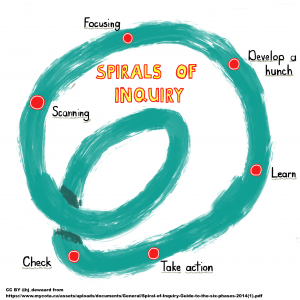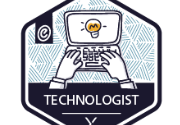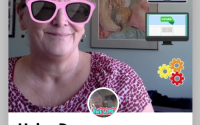By definition
I’m responding to a prompt for the Ontario Extend – Technologist module after reading this prompt from Joanne Kehoe [So You Want to be a Technologist].
 Now, I’m trying to define digital literacy. This is not a new topic for me but one that circles back on itself many times over. It’s been an inquiry for many years. I’ve participated in many online and in person conversations, discussions, explorations and examinations of this particular topic. I think Claire Coulter says it best in her post [#DigLit?] by looking at the messy, iterative process of defining this thing we need to grasp. It’s ungraspable! It’s smoke and mirrors, dissolving just as you think you’ve got a handle on it. It’s more than media literacy, bigger than information literacy, fuzzier than digital citizenship and way wider than literacy in the traditional sense.
Now, I’m trying to define digital literacy. This is not a new topic for me but one that circles back on itself many times over. It’s been an inquiry for many years. I’ve participated in many online and in person conversations, discussions, explorations and examinations of this particular topic. I think Claire Coulter says it best in her post [#DigLit?] by looking at the messy, iterative process of defining this thing we need to grasp. It’s ungraspable! It’s smoke and mirrors, dissolving just as you think you’ve got a handle on it. It’s more than media literacy, bigger than information literacy, fuzzier than digital citizenship and way wider than literacy in the traditional sense.
I teach a course called Critical Digital Literacy so you’d think I’d at least have a handle on the subject matter. For the course, I break down the critical digital literacies into five core resources – code breaking, meaning making, using and understand, analyzing, and persona. These originate from an article by Juliet Hinrichsen and Antony Coombs [The five resources of critical digital literacy: a framework for curriculum integration]. We spend nine weeks digging into this so one blog post isn’t going to do this justice – see the concept maps I’ve created for each of these topics on these course site pages:
I’ve written about digital literacies for Media Smarts Canada [Mapping digital literacy policy and practice in the Canadian education landscape] so this shouldn’t be a challenge for me. The graphic I created (found on page 10 of this document) still holds some sway over my thinking, but the CDL framework also holds some truth. For me, it’s a matter of separating the un-separable since literacies and fluencies are not the same thing. Knowing HOW to do techie things is not the same as questioning WHY to use techie things in teaching and learning.
I’m also partial to the definition presented by Doug Belshaw. He outlines eight digital literacies – cultural, cognitive, constructive, communicative, confident, creative, critical and civic. These are outlined in this slideshare presentation [Digital literacy workshop] and this Ted Talk.
The great thing about this topic is that there are many, many others who are also struggling to define this concept. By talking and sharing ideas, we each make more sense of this diffuse cloud and find nuggets worth sharing.
Share your own nuggets and thoughts – add a comment below.


